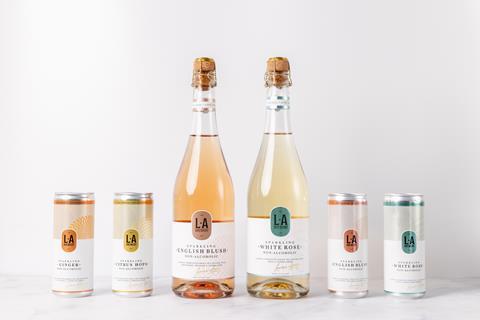
LA Brewery has raised almost £1m from shareholders to put the lossmaking kombucha brand’s operating model on a more sustainable footing.
The strategic review led the business to close its Suffolk factory and outsource production to a third-party co-packer to reduce overheads, resulting in eight staff being made redundant.
It has also scrapped the single-serve glass bottles in favour of a new range of slimline 250ml cans, which LA Brewery said would strengthen the brand’s positioning within the fast-growing low & no category. The brand will continue to sell its signature 750ml champagne-style bottles.
LA Brewery’s high cost base
Despite revenues hitting £1.2m in 2024, with the business doubling in size since 2022, the high fixed cost base of manufacturing in-house kept LA Brewery in the red, with losses growing by a further £1m last year. It pushed total losses since Louise Avery launched LA Brewery in 2017 to £5.6m, according to Companies House filings. Exceptional costs related to the brewery closure are expected to lead to a deficit of close to £1m again in 2025.
Sales are also forecast to tumble back to £750k this year following the loss of a high-volume co-branded customer as the brand moved from bottles to cans.
However, LA Brewery told its crowdfunding backers lost sales would be recovered and accelerate beyond previous levels as it moved into 2026, with the new canned format hoped to boost distribution and rate of sale, while sidestepping costs from the government’s EPR packaging tax legislation.
LA Brewery secured £760k from a direct shareholder raise to back its turnaround plan, opening up the opportunity for crowd backers on Crowdcube to invest in the private round on the same terms on a first-come, first-served basis, documents sent to investors revealed.
The discounted round values the business – which has raised more than £2m from investors on Crowdcube – at £1.3m. It is a significant drop from the £4.7m level of the previous crowd round in 2024, which itself was below the £5.9m valuation from a 2021 round.
Investing in low & no NPD
As well as funding the factory closure and move into cans, the fresh capital will go towards increased investment in marketing for the rapidly growing, higher margin DTC channel and continued NPD in line with growing no & low market demand.
Managing director Meg Ellis, who joined in 2023, told The Grocer: “These changes have reinforced our sustainability goals as a B Corp and were a key part of our decision to necessarily transform our manufacturing operations, alongside bringing down our operating losses.
“Our drinks production is now outsourced to a high-quality UK producer, who is also able to pack into cans for us. These transformative moves have created a more sustainable and scalable future for LA Brewery as we look to meet the demand for premium non-alcoholic options that deliver on taste, experience and health-giving benefits.”
She added: “These changes resulted in the regrettable closure of our Suffolk brewery. This impacted eight team members, whom we supported well beyond any statutory requirement. This included greatly extended notice periods, temporary incentives and ongoing support from our team to secure onward employment in the region. Additionally, we have retained two members of the team who continue to work with us remotely from Suffolk. This approach was simply the right thing to do for those involved and the ongoing existence of the business is now providing employment opportunities to many new people in other parts of the country.
“As 2026 draws near, we’re looking forward to further establishing LA Brewery as a leader in a growing low & no sector. The recent support from our investors has enabled us to develop this market opportunity, for which we have been very grateful as we drive for success.”
Origins in kombucha
LA Brewery originally launched as an unfiltered kombucha brand, but has since pivoted its positioning to more actively address the low & no market, offering a premium alternative to wine and zero-alcohol wine.
Its kombucha is labelled as ‘English Blush’ and ‘White Rose’, with the brand claiming to produce a fermented tea drink that has the body and complexity of alcohol.
Alongside its DTC channel, the brand is stocked by Ocado, Booths and Amazon, as well as independents in foodservice and the hospitality industry.
Alongside founder Avery and MD Ellis, who has more than 20 years of experience in retail, consumer and hospitality, including four years with foodservice chain Honest Burger, the business is backed by Mark Palmer and William Kendall, who were both part of the management team that sold Green & Black’s to Cadbury.
Kendall is chairman of the business and Palmer is a non-executive, with both taking co-founder titles.
Meeting gut health demand
Demand for products promoting gut health is on the rise in the UK across various categories, including yoghurt, snacking and drinks.
The past 12 months have seen prebiotic soda and kombucha brands – as well as a wealth of soft drinks carrying a host of other functional health claims – win significant investment and supermarket shelf space.
Interest in the category was also boosted by the $2bn acquisition of US prebiotic soda brand Poppi by PepsiCo in March.
However, the retail market for kombucha remains small in the UK, with supermarket sales of £33m last year, having grown 39% since 2020 [NIQ 52 w/e 21 December 2025].
LA Brewery chairman Kendall appeared on BBC Radio 4’s The Food Programme in 2023, and expressed disappointment in the lack of growth in the UK kombucha market compared with the boom seen in the US.
“The market’s certainly grown, but not exponentially,” he told the programme at the time. “When I discovered Louise and what became LA Brewery, I thought it would grow very, very fast. I have to say I’ve been rather disappointed.
“I visit the States often. I’ve seen the explosive growth there. It’s slowed down but at a very high volume. I assumed by now in the UK you’d have a multiplicity of flavours and kombucha drinks on the shelf. For whatever reason it’s taking a lot longer.
“I have to say after 30 years in the food and drink industry, I’m baffled as to why.”



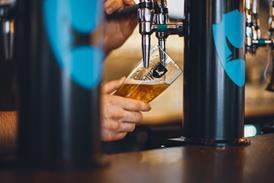
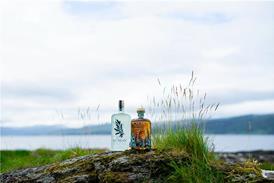


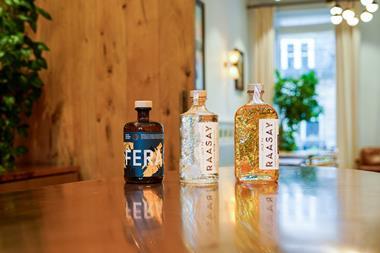
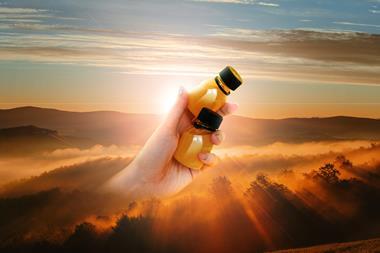

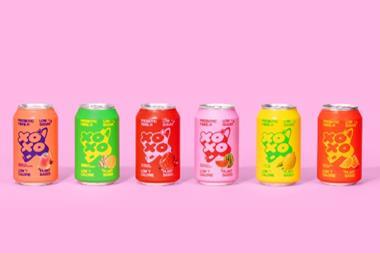
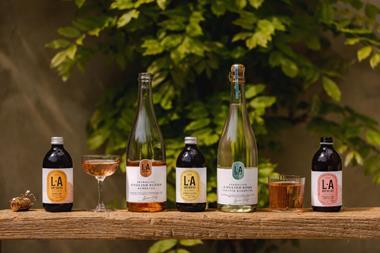
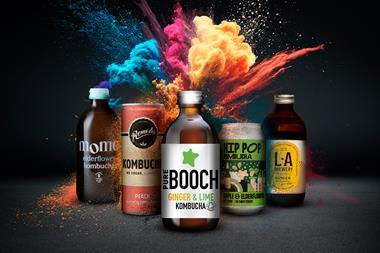
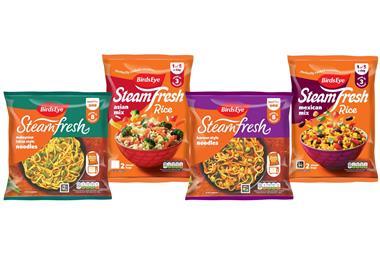
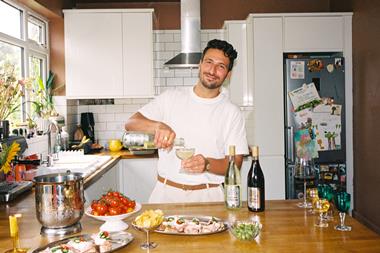
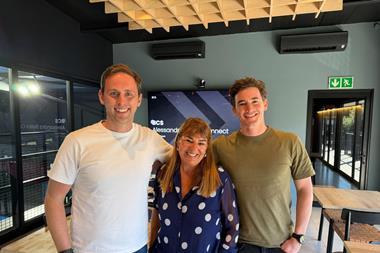


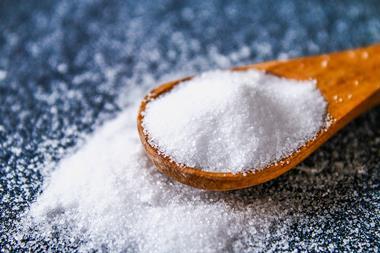
No comments yet